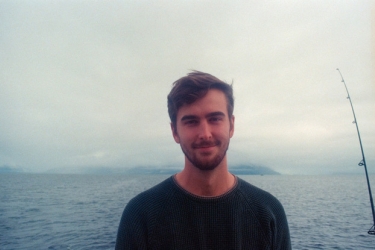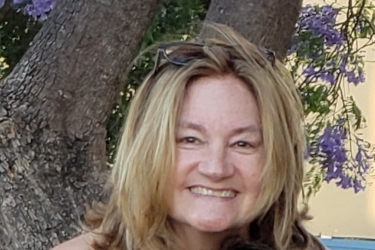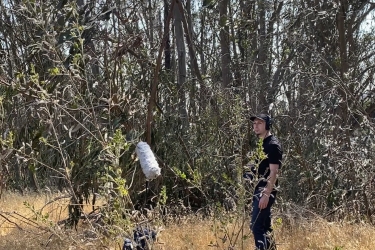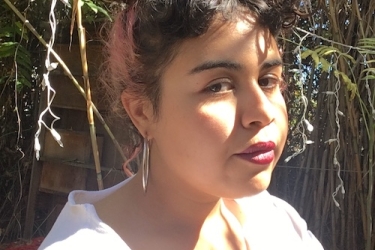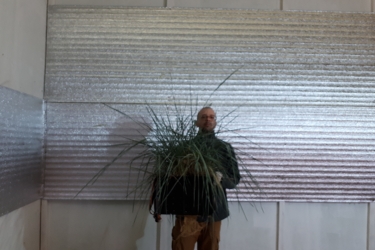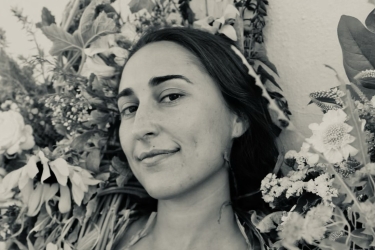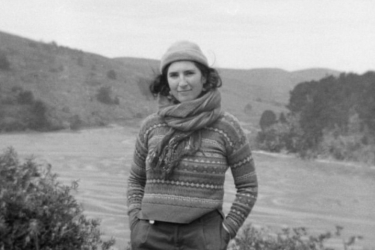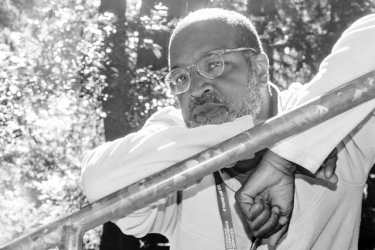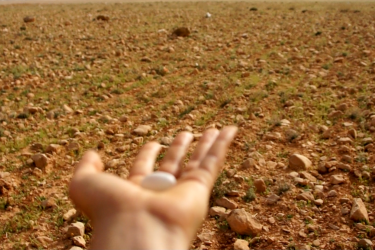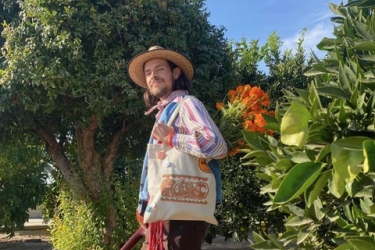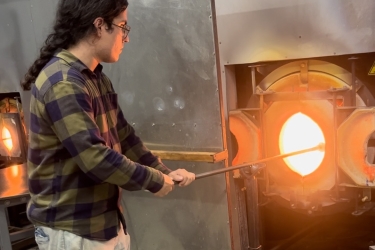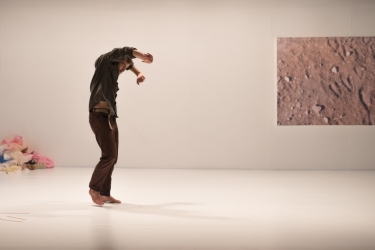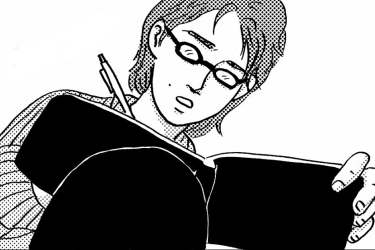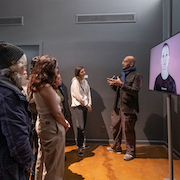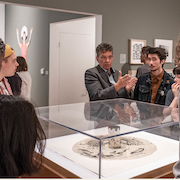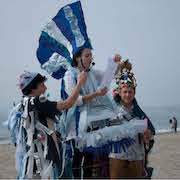You are here
MFA Students
Jonas Banta is a first-year MFA student in the Environmental Art and Social Practice program at UC Santa Cruz. He holds a BA in Indigenous Environments and a minor in Studio Art from Pitzer College. Jonas was born and raised in Dehgeyay Kaq’, also known as Anchorage, Alaska, where he learned to fish, make pictures, build community, and love his home. His research explores the intersections between Indigenous sovereignty and cultural-ecological restoration, focusing on anadromous fish habitat. Jonas is an enrolled member of the Three Affiliated Tribes of Mandan, Hidatsa, and Arikara.
Working at the intersection of the social sciences, geography, and the documentary arts, Amy Blondell originally trained in urban visual anthropology at New School for Social Research in New York. After completing postdoctoral work in public health, she joined the research faculty at UCSF where she was a PI on an NIH-funded study utilizing mobile technologies to collaborate, over a two-year period, with migrating homeless youth documenting healthcare, housing, transportation, labor, and income-generating activities. Together they created and exhibited travelogues combining annotated migration maps with photos, photo-essays, and geo-narratives.
Exploring the environments and urban social spaces that enable queer communities to survive, flourish, and create social change, Blondell has undertaken action research and social history projects focusing on the relationship between urban kinship, community, and political action. Social history projects include: the campaigns of homeless and marginally housed LGBT2QQ youth to create transitional shelter in San Francisco; the anti-racist and feminist political work of Black and White Men Together and Men of All Colors Together, New York; and feminist kinship and political mobilization in San Francisco’s Valencia Corridor, 1990-2010.
Amy Blondell currently resides in the Monterey Bay Area, with her wife Andrea and their six-year-old, Jamie.
Kevin Corcoran works with an open interest in sound as medium as it moves through contexts of music, art, communication and place and takes form as performance, publication, installation, and image. His background in percussion and improvisation opens up to field recording practices and place-based making with focus on abandoned and overlooked areas, conditions of excess, processes of decay and intersections of infrastructure and open space. Based in the California Bay Area, he collaborates across disciplines and borders having exhibited locally while performing and publishing work throughout the US, Europe and East Asia. Since 2015 he has co-organized the Mare Island performance series Re:Sound. Kevin holds a BA in Technocultural Studies from UC Davis.
B.1990 Queens, NYC
Drawing and printmaking house the visual practice of Génesis de Las Olas. After receiving her BFA in Illustration from Maryland Institute College of Art, life became an endless road-trip between West Philadelphia, Queer underground Bay Area, Middle Tennessee and New Orleans. In Philadelphia She was a shop monitor for Second State Press, Interned with Philadelphia Printworks and had a 2-year artist residency with 40th Street AIR. Since 2018 she’s had been a collective member of Idyll Dandy Arts (IDA), an artist-led queer land project in Middle Tennessee. Years of living in New Orleans and the Southeast lead to cultivating queer community among a rapidly changing social and environmental climate. In 2022 she completed a Clean Water Certification in Green Infrastructure with Louisiana Green Corps. Using landscaping techniques to manage urban stormwater along with coastal restoration rerouted the artist's social practice. In UCSC’s Environmental Art and Social Practice MFA she’s taken on a cultural practices of Radical Remediation, through printmaking, conservational wetland research and cultivating the importance of Queer and Trans Land Projects.
Ilia Dolgov. Artist, writer, plant grower, UI/UX designer. Born in 1984 in Voronezh, Russia. Lived and worked in Saint Petersburg before lefting the country after Russia's fullscale invasion of Ukraine in 2022.
Ilia's life and professional interests lie in the liminal area between art, plant-growing, and natural philosophy. In installations, writings, online projects, educational programs, and communicative situations, Ilia gathers a composite technology for grasping or initiating disturbing and graceful relationships between plant, human, machine, and symbolic selves.
Leslie is a traveler on an odyssey through the intersecting realms of our climate crisis, from policy, to technology, to land-regeneration. Her past experience includes advising presidential candidates, launching climate start-ups, and getting her hands dirty with land projects across Northern California and Southern Oregon. Drawing on these experiences, her artistic practice works to engage unlikely alliances and germinate new seeds out of narratives of damnation. She is especially interested in building bridges between the arts and emerging technologies, creating new pathways through methods of translation. Leslie holds a BA in Public Policy from the University of Michigan.
Kate Jaffe is an educator, weaver, sheep-shearer, quilter, flower gardener, daughter, friend, and partner. Her material practice centers around cloth-making and basket weaving from local materials such as: wool, tule, willow, English ivy, nettle, redwood bark, and Japanese indigo from her garden. Kate is the founding Director of Santa Cruz KIN (Kids in Nature), est. 2013, a grassroots, land-based education program which teaches elementary students about the natural and cultural histories of Santa Cruz, alongside social and emotional learning and skill building.
Her hobbies include: medicine making, book making, drinking tea, boiling dye mushrooms, gathering natural pigments, bicycle touring and repair, laughing, watching birds, holding newts, saving seeds, sitting close to dogs, and eating persimmons. She believes fundamentally and whole-heartedly that thoughtful/radical pedagogy is a capital “A” Art, and as such centers education in all of her work with the hopes of affecting much needed change and repair for the land and its many vivacious inhabitants.
Robert Johnson III is an artist /photographer/ filmmaker whose work explores the black cultural identity, liberation, migration and the concept of home.
His work explores a reframing (positive) of the black identity through the use of analog film and archives to examine blackness in America and how that idea has survived, evolving and is reinventing itself, despite the historical inequities, systemic injustices and environmental traumas that are navigated by Black Americans.
With themes of resilience, representation, education, struggle and joy, his practice reinterprets his familial (photographic) archive, cultural ephemera and his maternal ritual of quilting, weaving the past and the present, as a contemporary black aesthetic for a future that is now.
Dima Mabsout is a Lebanese artist who moved to Santa Cruz in September 2023. She is currently listening to this new landscape. What stories live on its surface? What memories are buried in the soil? What seeds are waiting to sprout?
Through site-specific performance, film, printmaking and collaboration, she is observing the colonial wounds embedded in land, tracing patterns of erasure across space and time, and drawing lines of solidarity.
Before joining the MFA program in Environmental Arts and Social Practice, she was living and working in Lebanon, co-creating street performances and interventions with Zayraqoun collective, leading community art programs with Catalytic Action design Studio, teaching at Horshna forest school, and beginning her land based research with the Museum for the Displaced .
Dima holds a BA in Fine arts from Central saint martins, London and an MA in arts in education from Harvard Graduate school of education.
Alberto Miguel Vazquez is a Central California Chicano artist in his first year in the Environmental Art + Social Practice MFA program at UC Santa Cruz. His work exists between the Santa Maria Valley, the Central Valley’s Fresno, and the Monterey Peninsula and all involves multidisciplinary approaches to collaborating with the communities in these areas. Alberto Miguel is a Folklorico and Azteca Danzante, Storyteller, Musician, Muralist, Sculptor, Performing Artist, and active community member in each of the spaces he inhabits.
While he may go days, weeks, even months without picking up his paintbrush, he finds other ways to interact with his community be it through music, gardening, or cooking together. It is in this practice of responsive community building through the arts that is central to his research at UCSC. He’s now researching the potentialities behind collective dreaming, of practicing radical inclusivity to envisioning pathways to navigate the changing socio-political landscape he and the collective face. More specifically, his research is investigating what inherent properties exist within natural landscape that can help the collective process grief, joy, and action.
Lee Chang Ming is an artist from Singapore working across photography, publishing, video and writing, and is interested in themes of intimacy, gender, environment and the everyday. His practice contemplates the subjective act of looking and the photographic medium as a process, exploring ideas of optics and haptics. His current research focus includes the intersections of queerness and nature, as well as alternative histories/narratives of marginal communities relating to his identity and ethnic heritage.
He has exhibited at places such as Taipei Fine Arts Museum (Taiwan), basis Frankfurt (Germany), Ilham Gallery (Malaysia), The Substation (Singapore), Komunitas Salihara (Indonesia), and Sa Sa Art Projects (Cambodia), among others. He also runs Nope Fun, an independent publisher and platform focusing on photography and contemporary image making.
Jorge (they/them) is a multimedia artist and anthropologist from Yanaguana/Somi Se'k/San Antonio, Texas. They hold an MA in Social Sciences with a concentration in Anthropology from the University of Chicago, a BFA in Glass from Rhode Island School of Design, and a B.S. in Astrophysics from Brown University. Jorge's ongoing ethnographic research studies how SpaceX's efforts at colonizing Mars have drastically affected South Texas through their settlement, rocket launches, and explosions. They build off of this critical work through installation, video games, digital media, and glassblowing as a means of finding alternative ways of relating to land, science, technology, and the environment with respect to Indigenous histories/cosmologies, decolonial politics, craft practices, and embodied knowledge.
Shane Scopatz (he/him) is a dancer, choreographer, and multimedia artist. He grew up dancing in California and graduated from the University of Califonia, Irvine, with a BFA in Dance. He spent most of his professional performance career in Tel Aviv, Israel dancing for the Batsheva Dance Company, the Inbal Dance Theater Company and freelancing. A drive to choreograph environmentally-themed works inspired him to move to the remote desert of the Colorado Plateau, to Corvallis, Oregon, where he received an MA in Environmental Arts and Humanities, and now to Santa Cruz to dive deeper into his practice as an MFA student in the Environmental Art and Social Practice program. Shane believes art is essential in the struggle for environmental and climate justice. In the shell of the old, his performance work aims to build a world of ecological flourishing for humans and the more-than-human.
Raty Syka (they/she), aka NUMPIE, is a comic artist and illustrator based in Santa Cruz, CA. With a background in sociocultural anthropology, folklore, and American Studies, Numpie makes comics and visual projects based on ethnographic research. Collaborative works highlight stories of agriculture in California - from the sustainable to the surprising. Raty has also served as a cooperative kitchen worker-owner, an academic advisor for undergraduate art students, and is a proud 4-H alum. Current projects-in-motion include exploring narratives of equine evacuation during the 2020 CZU fires in Santa Cruz and San Mateo counties, and highlighting experiences of goat/sheep grazing for fire reduction throughout California.
Jingtian Zong is a multimedia artist interested in art's power as resistance and social mediation. In the forms of interactive installations, interventions, videos, and adapted objects, her recent work discusses surveillance, collective memories, displacement, and manipulated history in and beyond the contemporary People's Republic of China.
